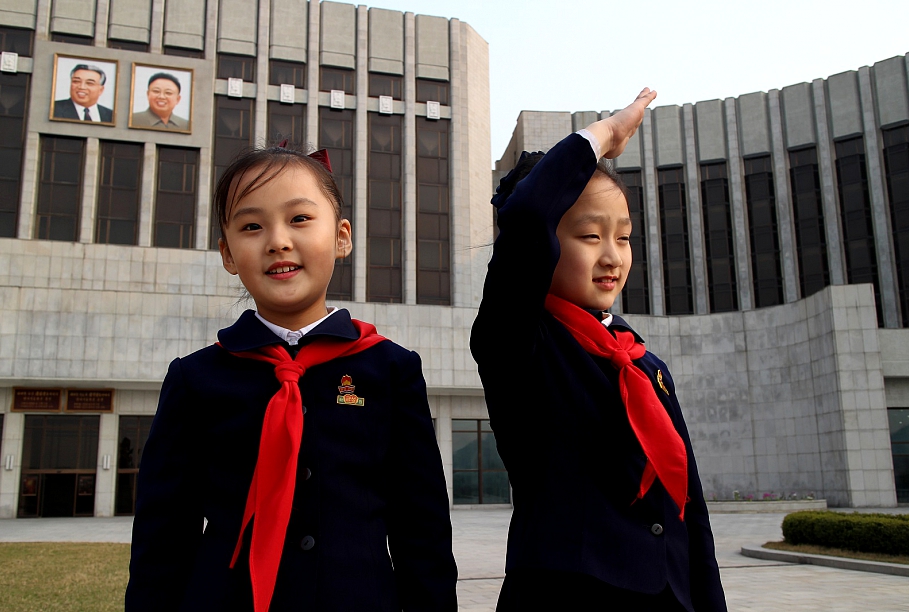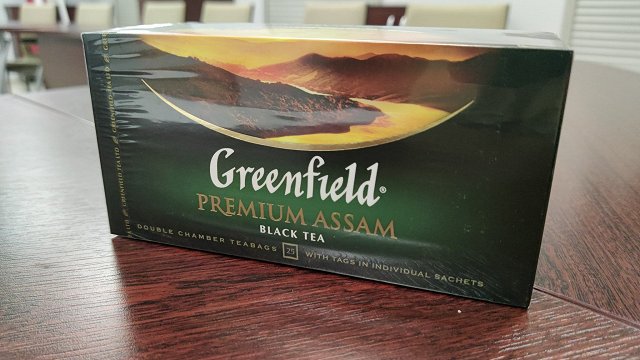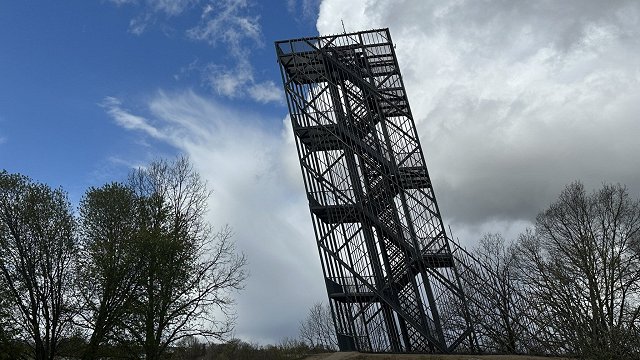Mansky is one of a growing number of Russian cultural and intellectual figures seeking freedom of expression in Latvia while retaining the ability to address a wide Russian-speaking audience.
"Under the Sun" shows the ideal North Korean society in which people are oppressed from their very childhood, following the story of a little girl about to become a Korean Children's Union member.
The critically acclaimed film was produced by Nataliya Manskaya, Mansky's wife, in the Rīga-based Vertov studio.
LTV: Will you be allowed into North Korea after making the film?
Vitaly Mansky: After shooting this film I can only visit North Korea but never return - because if you have to spend fifteen years in prison for stealing the leader's poster in a hotel, I could be given one or several life sentences, but I would prefer spending the rest of my days in more pleasant surroundings.
LTV: Do you currently consider yourself a Rigan?
VM: I consider myself an inhabitant of Rīga, as being a Rigan is something more than just living here. However, if everything continues as it is in Russia, perhaps I will once become a Rigan.
LTV: What were some things you couldn't conceive of before going to North Korea and making this movie?
VM: For such a discussion you have to watch the movie first, as then I'd be ready to consider it with the viewers. You know, I had the feeling of traveling in a time machine to the year 1939 in Stalin's Soviet Union. But, believe me, it was a trip in an alien space ship as there's nothing quite like that on planet Earth.
It's an unbelievable galaxy with absolutely cosmic forms of existence, absolutely. I cannot even describe it, so I invite you to watch the movie, in which we were able to close in upon the idea of this horror. [We were able to do so] just a little bit, but it was enough, as I saw how they were watching the film across the world and what were the people's faces after watching. Those were very strong emotions that you simply have to experience - that's what I really think!
LTV: Why was it important to you to make this movie?
VM: First of all because I was living in the USSR. My parents lived there, and it was important for me to understand how and why a human can be stripped of their freedom, why people agree to walk the road of non-freedom, especially now when there are worrying events happening in Russia, it was important to me to get to a society to which it could lead.
LTV: I was reading about your movie and the techniques you used to shoot what you weren't allowed to. Your operator had to covertly make copies of the filmed material. Is that true?
VM: In order to show this film to the world, we had to carry out a real covert operation using the most modern tools, duplicating memory cards... Me and the operator introduced special terminology for talking at the hotel. For example, duplicating the memory card was called 'washing the socks'. "Have you washed the socks? - No, I've just soaked them. - How much longer will it take? - Twenty more minutes. And so on. It sounds amusing standing here in a beautiful city with foreigners walking around, and it seems that something like that cannot exist - but it does.
We had maniacal fears after spending some time in North Korea. We barricaded the hotel doors with furniture so that the room could not be opened, so we could wake up if they tried to break in. It does not mean that someone broke in, but it reveals the constant terror and the constant filling with fear. Because it's very difficult to bear what's happening in this territory - you would not want to call it a state, it is more like a huge sect. I remember after first visiting North Korea I was dazed for two or three more days.
I am telling this only to the people who are able to feel and empathize, as I know people who, after visiting North Korea and returning to Russia, were teaching us how to live, they viewed it as a possible development scenario for Russia. The discussion is different with bastards or unfeeling people, but if you value life - yours and others' too [...] you cannot look at and accept what's happening in North Korea without immersing and feeling strong inner tension.
LTV: Were you able to talk on human terms with the heroes of the movie - for example, the little girl and her parents?
VM: You are asking whether we were able to talk on human terms to people who have been by and large stripped of any human traits. They are not able to do that. I have done filming in many countries on almost all continents so I know that people, even if they're shy to tell about themselves, ask the simplest of questions: where did you come from? Have you any children? What's the weather like where you live? But there during the filming we weren't asked a thing, not even our names.
LTV: Have they been turned into zombies?
VM: Absolutely. Those are people who have turned into something else unknown to us. Perhaps we came a bit closer to understanding the tragedy in the movie. I say just a bit, about 5 millimeters, but it's enough to feel strongly moved.
LTV: Has the film been showcased in North Korea?
VM: No, it hasn't. And I believe it won't be during the next fifty years. I can dream of course about screening this movie in North Korea, as the very fact of the screening would mean that... but it's impossible, and it's useless to talk about it.
You have to understand that nothing will change there during the lives of all the people currently alive, even during the lives of those Rigans who were just born.




































